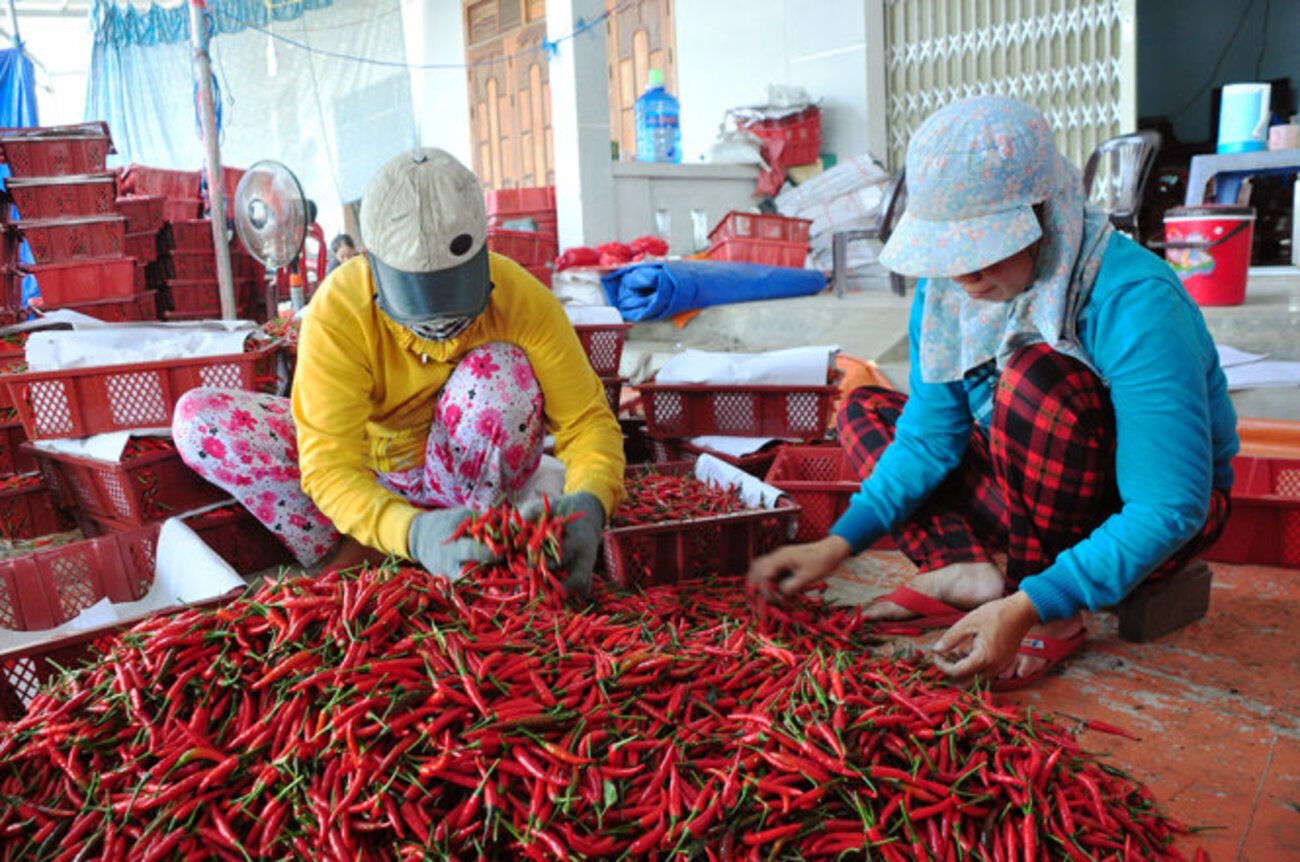HIGHLIGHTS
- China has agreed to recognize 5 Vietnamese companies to export fresh chilies
- Change supply and conditions for businesses to access raw material areas
FULL ARTICLES
Returning to the Chinese market
After the process of negotiating and overcoming the problems raised by the Chinese side, their side has agreed to recognize 5 companies to export fresh chilies, including Thanh An Onion Co., Ltd. Cai Lan import and export, Cam Long – Dong Thap Co., Ltd., Vinh Binh Agriculture Company Ltd., Tan Dong Agricultural Products Co., Ltd. These are the first 5 enterprises licensed to export under the official quota mode again after some time when the Chinese stopped importing fresh chilies from Vietnam.

Currently, the Plant Protection Department is trying to negotiate to sign a protocol to export chili peppers to the Chinese market.
Requirements for export shipments are to meet the requirements in the draft protocol and to meet the requirements for phytosanitary treatment with Methyl Bromide and cold treatment. Specifically: Treating Methyl Bromide with a dose of 32g/m3 in 2 hours or 18g/m3 in 5 hours; Cold treatment after Methyl Bromide treatment at 0.56 – 2.77°C for 4 days or 3.33 – 8.33°C for 11 days.
Shifting to the official quota mode: a long-term problem
The opportunity for Vietnam’s agricultural products and fruits is extremely large due to the great demand from the Chinese market. However, this is a big market with strict requirements. Therefore, the quality management of products in this country must follow the system. The shift from unofficial to official quota mode will be a revolution that requires perseverance, willingness, and readiness of the whole production and trade system.
To do this, Mr. Dinh Cao Khue, Chairman of the Board of Directors of Dong Giao Food Export Joint Stock Company, said that it was necessary to contact more closely with Chinese traders to understand the market. At the same time, industry associations must have representatives in the market to capture information.
Meanwhile, according to Mr. Vo Quan Huy, Director of Huy Long An Co., Ltd., the transition to official goods standards also needs to adapt to the requirements of the import market. To export, enterprises must perfect their business methods and meet import conditions.

Experts also said that the problem was to standardize from the beginning of supply and conditions for businesses to access raw material areas, not just change the way of trade at border gates.
In addition, localities can organize conferences to connect and invite large consuming enterprises with a methodical approach to the Chinese market. Along with that, through the Ministries to invite major Chinese consumption hubs to join, expand the market deep into the Chinese interior.
Thanh Ha













